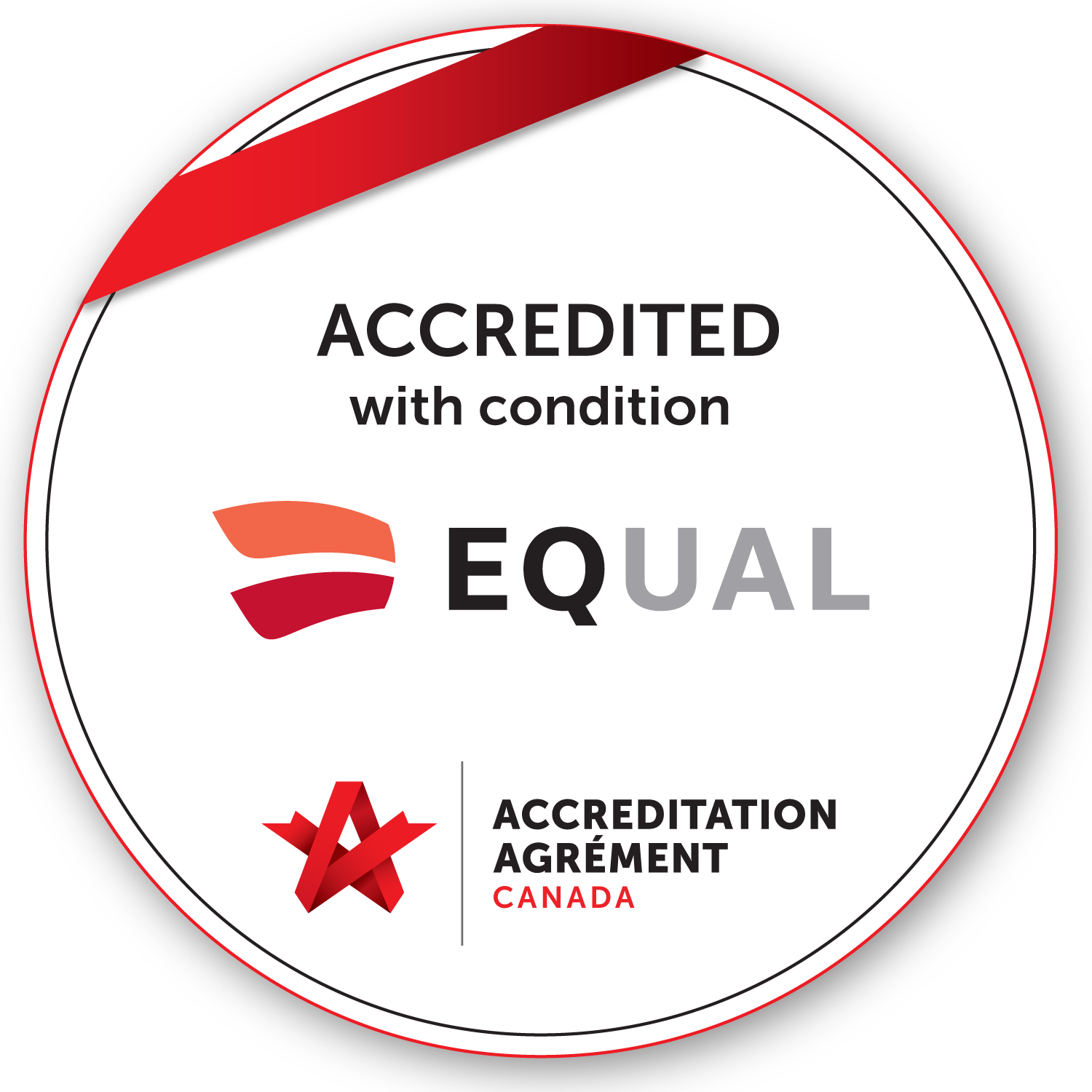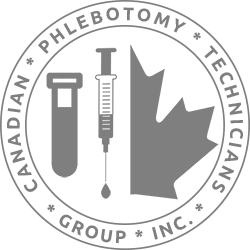Explore This Program
Program Overview
Learn how to safely collect and receive blood, tissue, and other samples from patients in the Medical Laboratory Assistant Winnipeg diploma program at Robertson College. As well, you will learn how to log samples and prepare them for testing, perform routine tests and sample analyses, and set up, clean, sterilize and maintain laboratories and equipment.
This program is licensed under Manitoba’s Private Vocational Institutions Act (PVIA).
The Medical Laboratory Assistant program is committed to:
- Graduating students who are able to pursue a career in the rapidly growing field of Medical Lab Assistants
- Providing a quality Medical Laboratory Assistant program that aligns with the existing Canadian Society for Medical Laboratory Science (CSMLS) competencies
- Preparing graduates to successfully pass the CSMLS Examination
- Preparing graduates to find successful employment in hospitals, clinics, and private labs
- Encouraging graduates to recognize the need for continuing education and professional affiliation
MLA are often required to spend a lot of time standing or sitting in a lab and may be required to perform repetative tasks. They must follow safety precautions. These measures reduce the risk of exposure to infectious body fluids, dangerous chemicals, or hazardous radiation.
Robertson is proud to work in partnership with Shared Health to help meet the labour market need for certified Medical Laboratory Assistants in Manitoba. Robertson College has been designated the official testing center for the Canadian Phlebotomy Technicians Group Inc. The CPTG is the certifying body of Phlebotomy across Canada. Robertson MLA program students are eligible to write the CPTG certification exam to become certified Phlebotomy Technicians prior to graduation.
*The cost of the MLA certification exam is not included in student tuition; students responsible for paying for the exam and are encouraged to check the CSMLS website for exam fees.
Program Delivery
Hybrid Learning
- A mix of online and on-campus learning.
- Enjoy the flexibility of remote learning without sacrificing valuable in-person training under the guidance of your instructors.
- You only come to the campus for scheduled in-person labs! The theory portion of the program is delivered online through Brightspace, our online learning platform.
Visit our Hybrid Learning to learn more about this delivery format.
Campus Locations
Campus Availability
Program Details
Quick Facts
Duration:
43 Weeks (10.75 Months)
Schedule:
5 Days a Week, Monday to Friday
Admission Requirements
The MLA program has criteria by which all applicants are evaluated against for admission into the program. Students must meet all criteria in order to be admitted into the program.
- Canadian high school diploma or equivalent verified by transcript
- Minimum grade of 50% in Grade 12 Mathematics and English *Students who do not meet the Mathematics and/or English requirement can apply by passing our Accuplacer Assessment.
- Minimum grade of 50% in Grade 11 or 12 Biology OR Grade 11 or 12 Chemistry as verified by transcript. *Students who do not meet the science requirement must achieve a minimum of 70% in Robertson’s Biology Assessment.
- Successful interview with a Robertson Student Admissions Advisor
- If English is Additional Language, Canadian Language Benchmark level 7,7,7,7 (reading, writing, speaking and listening) or equivalent as per Robertson’s English Language Proficiency policy.
Our admissions agents can work with you to ensure you meet the program’s criteria. This program is not currently open to International Students.
Need advice? A Student Admissions Advisor is here to support you.
Contact AdmissionsAccreditation & Certifications
CSMLS
Accreditation Canada
Canadian Phlebotomy Technicians Group Inc.
Shared Health
Career Opportunities
Many employment opportunities exist for Medical Laboratory Assistants in private laboratories, hospitals, community health clinics, public health facilities, university research labs, biotechnology companies, insurance companies and specialty labs (such as in vitro fertilization) labs. (Source: CSMLS Alt Careers)
Graduates can pursue careers as:
- Medical Laboratory (Lab) Assistants
- Lab Workers
- Phlebotomists
- Lab Assistants
Future job prospects are projected to be strong throughout Canada over the next 3 years, according to Canada Job Bank. This is applicable for all medical laboratory professionals (NOC 3212).
Job prospects for NOC 3212 have been greatly impacted since 2019. Job posting analytics data from EMSI show a steady posting frequency, illustrating that employers are putting consistent effort into hiring for these positions as compared to other occupations.
- Job Prospects for Laboratory Assistant – Medical in Canada
- Top 10 occupations with the largest 2-year increase in job vacancies and average offered hourly wage (4th quarter of 2021) – Statistics Canada
Experienced medical lab assistants may move into related laboratory careers such as Medical Laboratory Technicians or in laboratories run by industrial or manufacturing companies, pharmaceutical companies, veterinary companies or in government.
You could be earning in less than a year
Lifetime Career Services
Even though you’ll leave Robertson once you graduate, we will support you throughout your career. Our team will help you with resume building, job hunting and interview preparation and will continue to guide you as you advance in your role.
Before you graduate, you’ll be paired with a career specialist in your field who will help you find a meaningful place to start your career. As a graduate, you’ll have lifelong access to student services that are committed to your success and helping you thrive.
Learn more about Lifetime Career Services.
Next Start Dates
Instruction takes place online and in person. Learners have the option to join real time lectures every week with their peers and instructors. Hands on classes are scheduled and mandatory.

New start dates are being released all the time. Contact us for more dates.
Topics of Study
Anatomy & Physiology - 40 Hours
This course introduces students to human anatomy and the 12 major organ systems. Students will develop an understanding of the structure and function of these systems, as well as basic medical terminology and common diseases and disorders of each. Students will develop medical terminology skills and become familiar with laboratory testing associated with the different organ systems.
Career Preparation - 40 Hours
This course introduces students to career preparation strategies. Students will be introduced to job search strategies, interviews and other career management strategies.
Clinical Chemistry - 40 Hours
This course introduces students to the handling and processing of routine clinical chemistry tests. Students will gain an understanding of commonly ordered clinical laboratory tests, testing procedures, reference ranges of routine tests, and the significance of variant results. Students will develop problem-solving, quality control skills, and understand the importance of applying evidence in making decisions within the lab environment.
Clinical Integration - 40 Hours
This course provides students with the opportunity to consolidate theory in hands-on-experience. Students participate in a supervised clinical experience where they will practice point-of-care testing, venipuncture, electrocardiography, and a variety of cytology, microbiological, hematology and other laboratory procedures. The course will incorporate safe work practices, analytical procedures, professional practices, and quality management into their daily laboratory work.
Clinical Laboratory Basics - 60 Hours
This course introduces students to the foundational skills of running a laboratory. Students will be introduced to the concept of laboratory safety, WHIMS protocols and procedures to respond to laboratory accidents and hazards. Students will develop the skills to support internal and external quality assurance measures that are necessary to the safe functioning of the laboratory environment.
Communication for MLA Professionals - 40 Hours
This course introduces students to the core concepts of communication and the importance of effective communication within the profession. Ideas such as communicating professionally, conflict resolution, team communication, and inter-cultural communication will be explored using a variety of approaches. Students will develop and strengthen the communication skills needed to communicate effectively with supervisors, co-workers, and patients.
Computer Fundamentals - 40 Hours
This course will prepare students to perform functions common to all Microsoft Windows applications. Elements include the ability to create and manipulate Word, Excel, or PowerPoint applications, modify the display of toolbars and other on-screen elements, use online help, and perform file management, editing, formatting, and printing functions common to most Windows applications. Students will be introduced to how a laboratory computer system is used to manage laboratory requests, reports, and information.
CSMLS Exam Preparation - 20 Hours
This course prepares students to write the CSMLS exam. Students will review CSMLS exam content, develop a practice exam schedule, and complete practice exams in preparation for completion of the CSMLS exam.
Electrocardiography - 40 Hours
This course introduces students to the theory and skills necessary to conduct diagnostic electrocardiograms on patients with diverse needs. Students will develop the skills to recognize and respond to errors. Students will demonstrate the skills to problem-solve, troubleshoot, and apply evidence-informed decision-making during testing procedures.
Hematology - 40 Hours
This course introduces students to the handling and processing of routine hematology tests. Students will gain an understanding of commonly ordered hematology tests, testing procedures, reference ranges of routine tests, and the significance of variant results. Students will develop problem-solving, quality control skills, and understand the importance of applying evidence in making decisions within the lab environment.
Histology and Cytology - 40 Hours
This course introduces students to the handling and processing of routine histology and cytology tests. Students will gain an understanding of commonly ordered histology and cytology tests, testing procedures, preparation for cutting, processing, and accessioning. Students will develop problem-solving, quality control skills, and understand the importance of applying evidence in making decisions within the lab environment.
Infection Control and Prevention - 40 Hours
This course introduces students to the chain of infection and methods of prevention and control within the laboratory environment. Students will identify techniques to prevent and manage infection such as routine practices, sterilization, protective personal equipment, and cleaning and decontamination procedures. Students will develop an understanding of the MLA role in controlling infection within the laboratory environment.
Introduction to MLA Profession - 40 Hours
This course introduces students to the MLA profession. The course will provide students with the opportunity to understand the health care system and societal factors affecting health care and the medical laboratory. Students will be introduced to insert MLA roles and responsibilities, ethical practice, and standards of practice. Students will explore emerging issues and trends within the discipline.
Microbiology - 40 Hours
This course introduces students to the handling and processing of routine microbiology tests. Students will gain an understanding of commonly ordered microbiology tests, testing procedures, medical composition, autoclaving and quality control. Students will develop problem-solving and understand the importance of applying evidence in making decisions within the lab environment.
Phlebotomy - 40 Hours
This course introduces students to the theory and skills necessary to conduct diagnostic venipuncture and capillary blood collection on patients with diverse needs. Students will develop the skills to recognize and respond to errors. Students will demonstrate the skills to problem-solve, troubleshoot, and apply evidence-informed decision-making during testing procedures.
Point-of-Care Testing 40 Hours
This course introduces students to the theory and skills necessary to conduct point-of-care tests on patients with diverse needs. Students will develop the skills to recognize and respond to errors. The course will examine effective and empathetic communication with patients. Students will demonstrate the skills to problem-solve, troubleshoot, and apply evidence-informed decision-making during testing procedures.
Professionalism for MLAs - 40 Hours
This course introduces students to the concept of professional practice. Students will be introduced to the idea of developing a professional identity, developing professional mindsets, and developing skills as a professional.
Regents and Calculations - 20 Hours
This course introduces students to the preparation of regents, solutions, stains, and media. Students will develop the skills to prepare regents, solutions, stains, and media to specification using laboratory mathematical processes. Students will be provided with the opportunity to review mathematical skills related to the laboratory and apply these in practice.
Specimen Handling - 40 Hours
This course introduces students to the procedures and protocols related to the collection, labeling, retention, transport, traceability, and disposal of various types of specimens. Students will be introduced to standard operating procedures (SOP’s) for each and develop the skills to handle specimens effectively.
Practicum - 240 Hours
The Practicum experience is composed of an integrated work and learning experience. The course is designed to help students integrate academic learning with the realities of the work environment.
Learning Experience
Classes
Have the flexibility to live your life while going to school with our half-day classes. Our flexible start dates and small class sizes give you plenty of opportunities to learn when it’s best for you and gain the hands-on skills to succeed in any industry.
Industry-Leading Instructors
Learn from industry professionals who bring real-life experience into the classroom. You can book office hours or get virtual support from your instructors through Brightspace, where you can schedule video appointments and use instant messenger to ask questions.
Lifelong Career Services
Connect with a career specialist in your field who will help you find a meaningful place to start your career. As a graduate, you’ll have lifelong access to student services that will help you with resume building, interview preparation and networking.
Financial Assistance and Funding
Robertson offers a variety of financial aid opportunities to ease students’ stress and allow them to focus on their studies. If you need extra support, we have flexible funding to accommodate all our students, no matter their financial situation. Our dedicated Financial Aid Officers will help you every step of the way.
*The financial assistance and funding is not applicable for international students.
Questions about tuition and funding?
Contact AdmissionsPracticum
The practicum is an essential part of a learner’s program. It is both a graduation requirement and an extension of in-class learning. The practicum asks you to apply the skills, theories, and concepts that you learned in your classes in an entry-level work experience situation.
Practicum must begin and end within the dates outlined in your program schedule and enrolment contract. Practicum is a full-time, unpaid commitment, and you will be assigned to a host site by our Practicum Team. The practicum will enhance your career development skills, industry networking opportunities, and professional communication skills.
Robertson arranges on site practicum placements for students in the MLA program and works in collaboration with partners such as Dynacare and Shared Health to provide an enriching practicum experience.
Let's Get Started
Simply fill out the form below and one of our Student Advisors will provide any extra information you need and get your account activated as early as today.
Program Availability
This program is delivered through our Winnipeg campus.




